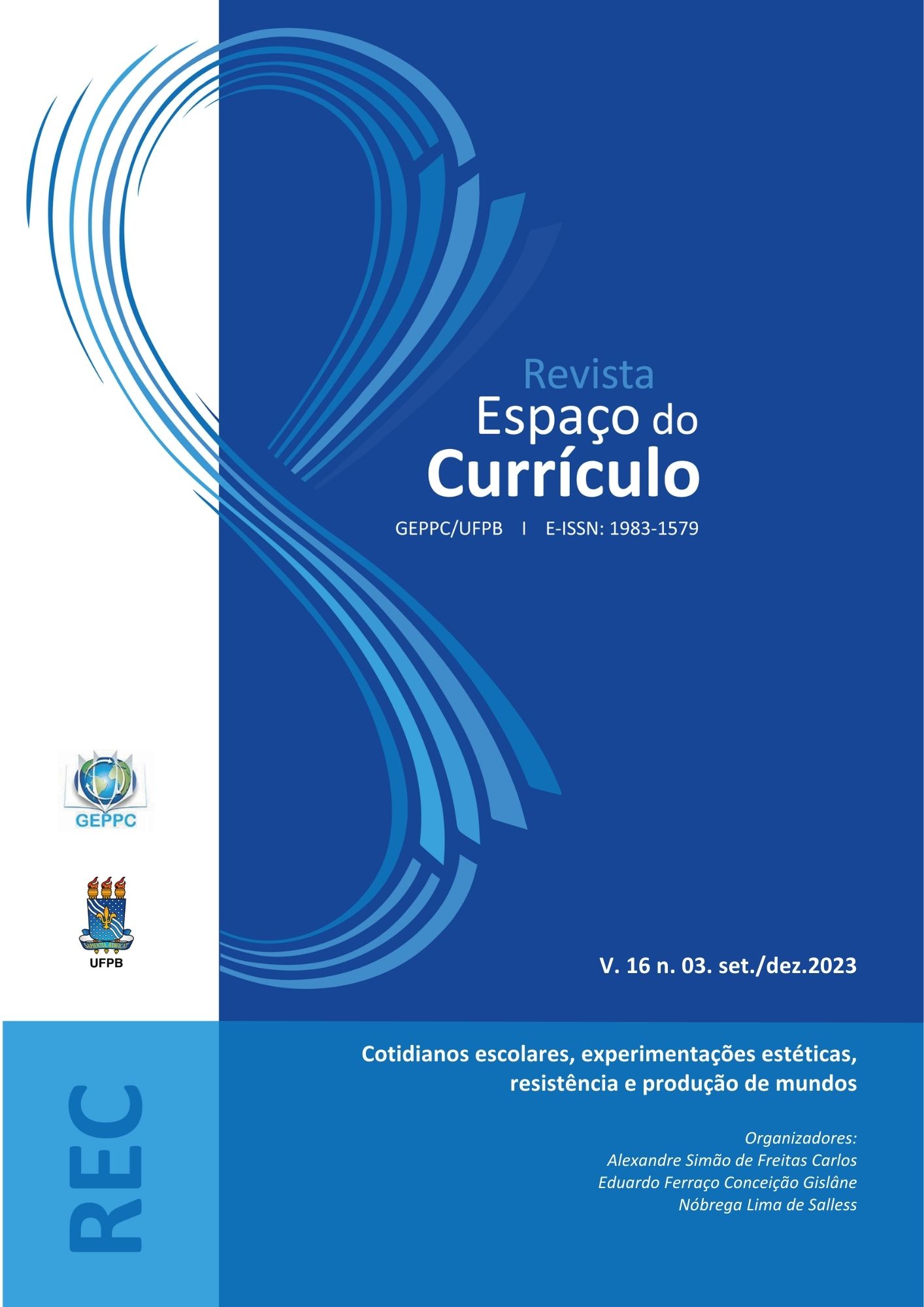(DE)COLONIZATION OF THE CURRICULUM
the challenge of moving magma from colonial structures to enable an ecology of knowledge
DOI:
https://doi.org/10.15687/rec.v16i3.67256Keywords:
Decolonialidade, Antirracismo, CotidianoAbstract
This article brings discussions on (de)coloniality, racismo, everyday narratives, and childhood within the contexto of curriculum and education. The proposal is to reflect on the relevance of considering ourselves as subjects of our own history so that, in dialogue with children's narratives presented and decolonial debates, we can think of anti-racist tactics and practices, understanding the ways in which the colonial order operates in our subjectivities. Thus, possibilities are indicated for thinking about knowledge production that points to an ecology of knowledges (SANTOS, 2013) woven in the microspheres of the classroom. All of this is inspired by the propositions, methodologies, and questions raised in the undergraduate thesis entitled "Decolonizing Childhood: Towards an Everyday Epistemology of Black Children," which methodologically relies on autobiographical narrative, research on everyday experiences, and conversational methodology, aspects that permeate the article's writing. Its results contribute to the redefinition of black childhoods through intercultural perspectives encountered in the school context, and inspire pedagogical reflections on the role of the school in promoting practices that contribute to the production of resistant and non-silenced subjectivities.
Downloads
Metrics
References
ALMEIDA, Silvio. Racismo Estrutural. São Paulo: Sueli Carneiro; Pólen, 2019.
ALVES, Nilda. Decifrando o pergaminho: os cotidianos das escolas nas lógicas das redes cotidianas. In: ALVES, Nilda; OLIVEIRA, Inês Barbosa de (orgs.). Pesquisa nos/dos/com os cotidianos das escolas: sobre redes de saberes. Petrópolis: DP et Alli, 2008.
BARONI, Patrícia, CONCEIÇÃO, Deise Guilhermina. Currículo, táticas, resistências: maneiras de fazer de estudantes egressos negros em tempos de regulação autoritária. Rev. Espaço do Currículo (online), João Pessoa, v.13, n.3, p. 446-462, set/dez. 2020. DOI: https://doi.org/10.22478/ufpb.1983-1579.2020v13n3.53947
CERTEAU, Michel de. A invenção do cotidiano: 1.artes de fazer. Petrópolis: Vozes, 1994.
DIAS SEM FIM. Direção: Joe Robert Cole. Produção de Mighty Engine e Color Force. Estados Unidos: Netflix, 2020. Streaming.
EVARISTO, Conceição. Conceição Evaristo | Escrevivência. Youtube, 6 fev. 2020. Disponível em: . Acesso em: 24 ago. 2022.
FANON, Frantz. Os condenados da Terra. Rio de Janeiro: Civilização Brasileira, 1961.
FERRAÇO, Carlos Eduardo. Eu, caçador de mim. In: GARCIA, Regina. Método: pesquisa com o cotidiano.Rio de Janeiro: DP&A editora, 2003. p. 157-175.
GOMES, Nilma. O movimento negro educador: saberes construídos nas lutas por emancipação. Petrópolis: Vozes, 2017.
KILOMBA, Grada. Memórias da plantação: episódios de racismo cotidiano. Rio de Janeiro: Cobogó, 2020.
PALMIERI, Emerson. Social media, Echo chambers and contingency: a system theoretical approach about communication in the digital space. Kybernetes, Vol. ahead-of-print, No. ahead-of-print, abr. 2023. Disponível em: https://doi.org/10.1108/K-12-2022-1650. Acesso em: 2 jul. 2023. DOI: https://doi.org/10.1108/K-12-2022-1650
QUEIROZ, Beatriz Mendes. (De)colonização da infância: por uma epistemologia cotidiana das crianças negras. Rio de Janeiro, 2022. Monografia (Licenciatura em Pedagogia). Faculdade de Educação, Universidade Federal do Rio de Janeiro, Rio de Janeiro, 2022
QUIJANO, Anibal. Colonialidade do poder, eurocentrismo e América Latina. In: LANDER, Edgar. (Org.). A colonialidade do saber: eurocentrismo e ciências sociais – perspectivas latinoamericanas. Buenos Aires: Clacso, 2005. p. 227-278.
ROLNIK, S. Pensamento, corpo e devir. Uma perspectiva ético/estético/política no trabalho acadêmico. Cadernos de Subjetividade, São Paulo, v. 2, n.1, p. 241-251, 1993.
SAMPAIO, Carmem; RIBEIRO, Tiago; SOUZA, Rafael. Conversa como metodologia de pesquisa: por que não? Rio de Janeiro: Ayvu, 2018. SANTOS, Boaventura de Sousa. Para além do pensamento abissal: das linhas globais a uma ecologia de saberes. In: SANTOS, Boaventura de Sousa; MENESES, Maria Paula (orgs). Epistemologias do Sul. São Paulo: Cortez Editora, 2013. s/p.
WALSH, Catherine. Interculturalidade crítica e pedagogia decolonial: in-surgir, re-existir e reviver. In: CANDAU, Vera Maria (Org.). Educação intercultural na América Latina: entre concepções, tensões e propostas. Rio de Janeiro: 7 Letras, 2009. p. 12-43.
Downloads
Published
How to Cite
Issue
Section
License
Copyright (c) 2023 Curriculum Space Journal

This work is licensed under a Creative Commons Attribution 4.0 International License.
By submitting an article to Curriculum Space Journal (CSJ) and having it approved, the authors agree to assign, without remuneration, the following rights to Curriculum Space Journal: first publication rights and permission for CSJ to redistribute this article. article and its metadata to the indexing and reference services that its editors deem appropriate.
















